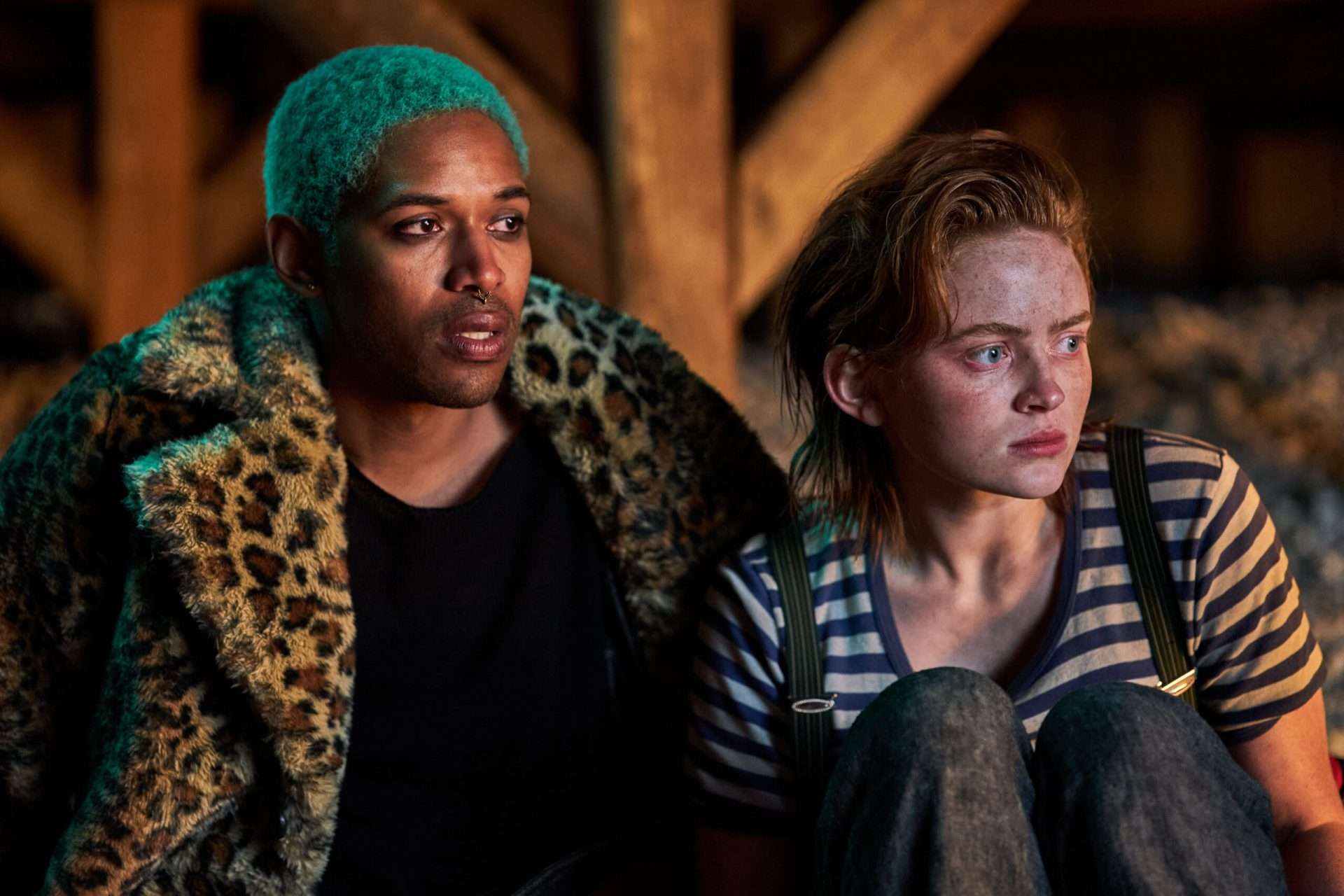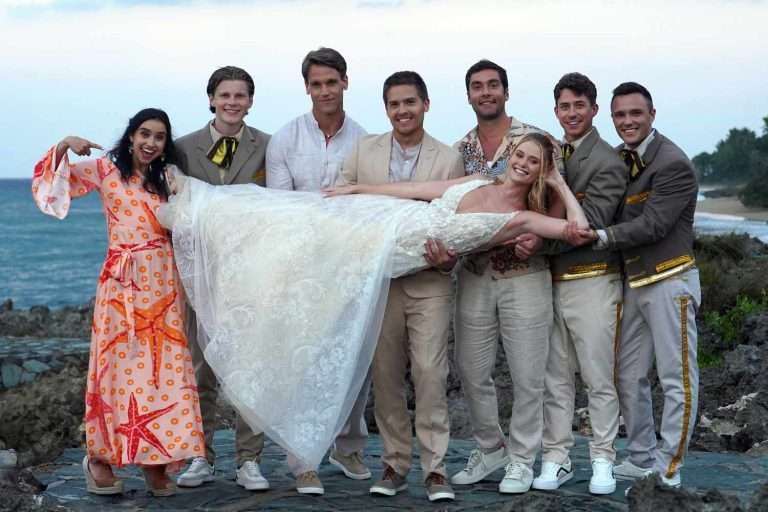O’Dessa” (2025) is another musical film by Geremy Jasper, who previously wrote and directed “Patti Cake$.” This 2017 film was about a rapper with high ambitions, who hoped to leave her sorrows behind to find success in the world of music. That is particularly difficult for someone from her socio-economic background. Most of Patti Cake$’s themes appear in “O’Dessa,” which also follows a young girl leaving her home in pursuit of success. However, the approach is unmistakably different. Jasper’s former film used a rather naturalistic tone of narration while his latest is dynamic, vibrant, and is set in a neon-soaked post-apocalyptic world.
Jasper’s film uses its futuristic setting in contrast to its gritty working-class neighborhoods. It heightens the dreadful darkness in their lives. In this world, even the neon lights feel piercing and harsh. However, at times, they have a glisteningly soft and tender effect, akin to Jane Schoenbrun’s “I Saw the TV Glow.” In those beats, the film explores tenderness and sensitivity that feels lost or ignored in its hellish cityscape. That’s because the city is dictated by Plutonovich (Murray Bartlett), a tyrannical celebrity with a god complex, who dictates what should or should not please its residents.
Jasper’s script echoes details from the real world that are impossible to ignore. It follows a city riddled with severe issues, but they are overlooked for the sake of indulgent entertainment. Plutonovich dictates what should be consumed by these people and offers only the things that he wants them to consume. So, their eyeballs remain glued to the screens. They devour every bit of glitzy and sensationalized bit of pleasure—while putting little to no effort into thinking about or working on what actually affects their lives.

In this context, Jasper’s film becomes an allegorical tale about our unhealthy relationship with hedonistic media, which profits from overstimulation. Many of us consume it and feel full, which leaves us with little energy to work on things that actually matter. Its oversaturation leads to its own set of troubles.
O’Dessa enters the streets of this city that is considered a wasteland. She hopes to touch the hearts of people beyond her small world on a farm—by singing her melodies. That’s why she left her home. She decided to follow in the footsteps of her estranged father, Vergil Galloway (Pokey LaFarge). By doing so, she hopes to carry forward his tradition of ‘rambling’ and narrate the tales that are close to her heart.
In this pursuit, she is left with nothing to return to, hoping the city will accept her. However, she finds no comfort there. No one in the city thinks about their future, let alone is hopeful about it. Still, O’Dessa strums her banjo strings, hoping someone would listen to her. That’s how she discovers Euri Dervish (Kelvin Harrison Jr.), a talented singer. In Plutonovich’s world, he is reduced to performing for others rather than himself. He and O’Dessa bond over their shared struggles, but their love is at odds with the local norms. So, the rest of the film follows their struggle for co-existence while pursuing their individual musical goals.

Jasper introduces many tender moments between these two leads. He also presents them in a strikingly non-conforming fashion. Sadie Sink sports a white suit and a hairdo, reminiscent of the pop stars from the bygone era. Kelvin Harrison Jr. appears in ways that defy norms. O’Dessa’s folksy tunes also stand against Plutonovich-endorsed mainstream music. So, throughout the film, there’s an evident undercurrent of counterculture since its characters hope to question authority. Even when they don’t, there’s an unspoken resentment toward the authority.
Sink and Harrison’s acting is the strongest part of this film. They make their characters appear grounded even in an otherworldly setting. However, their devoted performances cannot save a fundamentally derivative script. Most of its scenes feel uninspired. They play safe by employing melodrama in a woefully hollow script. Sink pours her heart out into a character that is not nearly as soulful as her commitment. Her tragic arc offers her very little to work with beyond the usual cliches.
The film looks and sounds stunning, especially in parts that convey a genuine emotion. Its production design choices are mostly compelling and its music fills the space as it is supposed to in a rock opera. However, these sincere moments are sparse, scattered, and are placed at odd moments. The overall lack of cohesion makes it difficult to connect with the characters’ anguish, even in its barebone structure. It’s unfortunate because “Patti Cakes” left me with hope from its makers despite its formulaic narrative. But “O’Dessa” leaves me with hardly anything to hold on to.








